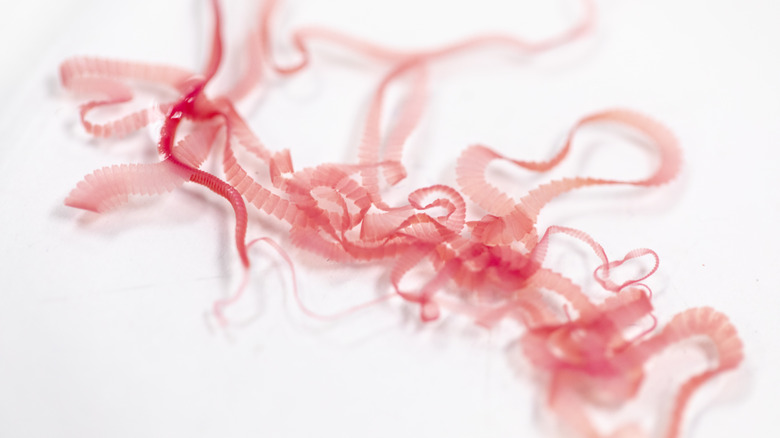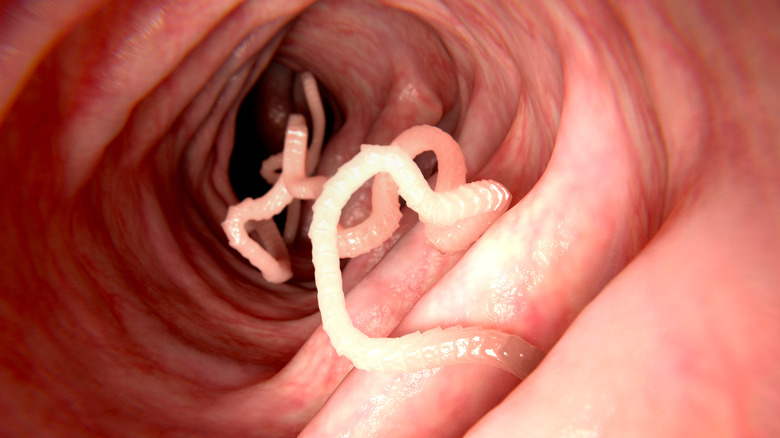How A Tapeworm Infection Is Diagnosed
Tapeworm infections are caused by tapeworms, which are flat parasites that live and feed on the food in the intestines (via Cleveland Clinic). The head of the tapeworm attaches to the intestinal wall, thereby allowing it to gain nourishment and nutrients from the host. A tapeworm lays eggs in the body to reproduce.
Per Cleveland Clinic, the eggs pass through the intestines and are released via poop. That's how the eggs find a new host to infect. According to the World Health Organization (WHO), people may get tapeworm infections, most concerningly from T. solium (pork tapeworm), by eating raw or undercooked meat. Sometimes, tapeworm infections may also be caused by poor hygiene or drinking contaminated water.
Tapeworm infections are generally rare in the United States, but more common in other places such as Latin America and certain African, Asian, and European countries. The Centers for Disease Control and Prevention (CDC) states that fewer than 1,000 cases of tapeworm are reported annually in the US.
Diagnosis of tapeworm infection
Many people know they have tapeworms by finding worms in their stool. If that happens, you should seek medical assistance from a doctor who will ask you to go for certain tests. Per the Mayo Clinic, there are three main ways to test for tapeworm infection.
The most common method is the lab analysis of a stool sample. They check the stool using microscopic technology to look for tapeworm eggs. It's possible for the lab to ask for multiple samples to confirm the results. The labs may also take a sample of eggs directly from the anus by applying tape to the anus.
Another method is a blood test which helps the doctors look for antibodies in the system that may be fighting off the tapeworm infection. Some doctors may use medical imaging such as X-rays or CT scans to look for tapeworm infections inside the body.
Tapeworm infections are easy to treat using anthelmintic drugs, which help paralyze the tapeworms and remove them from the intestinal wall, explains Cleveland Clinic. Later, they pass out from the body. However, it's necessary to monitor the poop for a while as tapeworms might regenerate.


